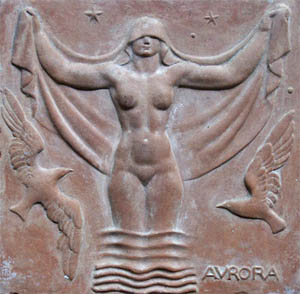|
4. Mortal : a being that knows he is going to die ---------------------------- Previous - Next - Contents
A being that is going to die. But why "especially human", what does that mean ? A rather clumsy attempt it would seem to exclude animals. The Greek philosophers (as I read in André Comte-Sponville's delightful "The Little Book of Philosophy") have a far better and very precise definition of the word :
Here we have a clear distinction, all living beings die, but (presumably)
only human beings actually know, are aware, throughout their
lives, that they are going to die.
It is precisely because of our wider awareness that we have started to
observe, explore, discover, think, invent, create, to eventually reach the
very point of development at which we are at this moment. All our
achievements of the past have been possible because of our ever increasing
awareness of the world, the universe and of ourselves. But the birth and growth of this wider awareness has had, and still has, its growing pains. The wider awareness makes us at times better than animals, but at times too much worse than them. We see that in the news on TV and in papers on a daily basis. We have become human beings, but as yet have not reached the stage that we are truly humane (= "benevolent, compassionate, inflicting the minimum of pain"). Fear
too has been a byproduct of our greater awareness. Fear (initially) of
thunder, lightning, storms, and all the things we can not (or as yet do not) understand. So we
created Gods to explain them (assigning them the same function as a
patriarch, head of a family, but at an amplified scale), and who could
punish or reward us according to our actions, behaviour. Copyright © 2010 Michael Furstner
|
